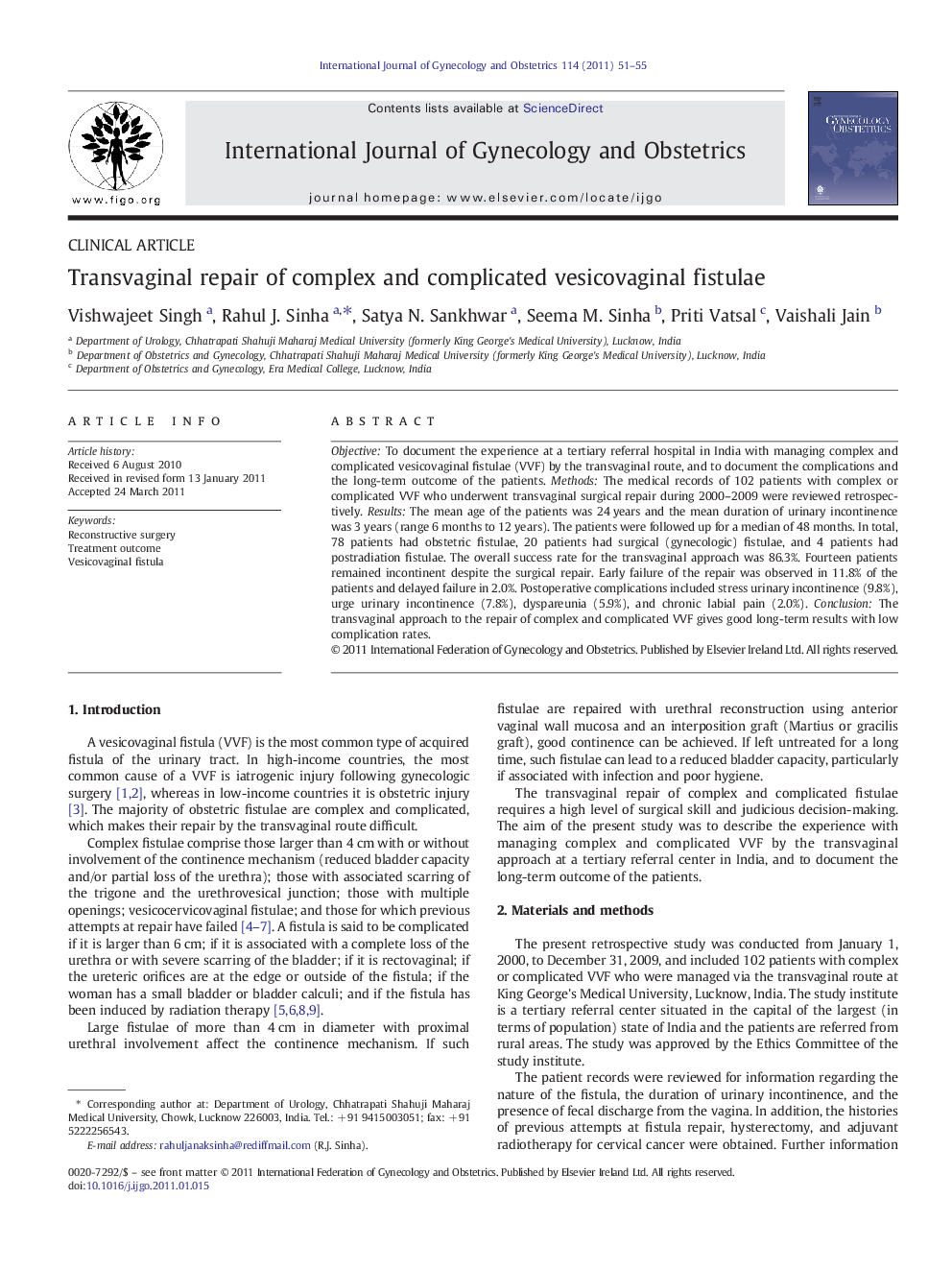| Article ID | Journal | Published Year | Pages | File Type |
|---|---|---|---|---|
| 3949519 | International Journal of Gynecology & Obstetrics | 2011 | 5 Pages |
ObjectiveTo document the experience at a tertiary referral hospital in India with managing complex and complicated vesicovaginal fistulae (VVF) by the transvaginal route, and to document the complications and the long-term outcome of the patients.MethodsThe medical records of 102 patients with complex or complicated VVF who underwent transvaginal surgical repair during 2000–2009 were reviewed retrospectively.ResultsThe mean age of the patients was 24 years and the mean duration of urinary incontinence was 3 years (range 6 months to 12 years). The patients were followed up for a median of 48 months. In total, 78 patients had obstetric fistulae, 20 patients had surgical (gynecologic) fistulae, and 4 patients had postradiation fistulae. The overall success rate for the transvaginal approach was 86.3%. Fourteen patients remained incontinent despite the surgical repair. Early failure of the repair was observed in 11.8% of the patients and delayed failure in 2.0%. Postoperative complications included stress urinary incontinence (9.8%), urge urinary incontinence (7.8%), dyspareunia (5.9%), and chronic labial pain (2.0%).ConclusionThe transvaginal approach to the repair of complex and complicated VVF gives good long-term results with low complication rates.
